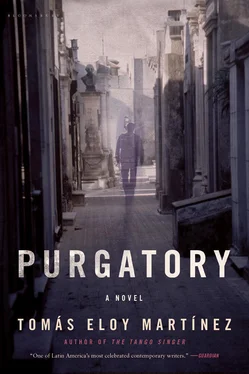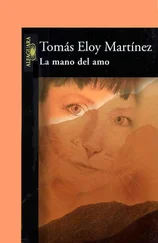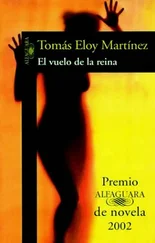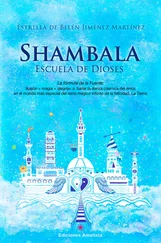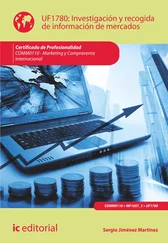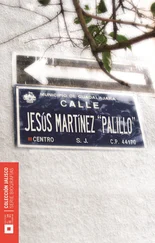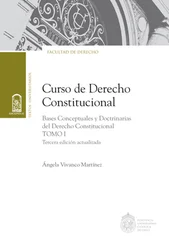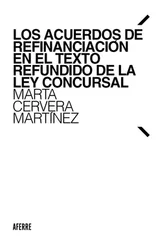Tomás Eloy Martínez - Purgatory
Здесь есть возможность читать онлайн «Tomás Eloy Martínez - Purgatory» весь текст электронной книги совершенно бесплатно (целиком полную версию без сокращений). В некоторых случаях можно слушать аудио, скачать через торрент в формате fb2 и присутствует краткое содержание. Год выпуска: 2008, Издательство: Publishing PLC, Жанр: Современная проза, на английском языке. Описание произведения, (предисловие) а так же отзывы посетителей доступны на портале библиотеки ЛибКат.
- Название:Purgatory
- Автор:
- Издательство:Publishing PLC
- Жанр:
- Год:2008
- ISBN:нет данных
- Рейтинг книги:5 / 5. Голосов: 1
-
Избранное:Добавить в избранное
- Отзывы:
-
Ваша оценка:
- 100
- 1
- 2
- 3
- 4
- 5
Purgatory: краткое содержание, описание и аннотация
Предлагаем к чтению аннотацию, описание, краткое содержание или предисловие (зависит от того, что написал сам автор книги «Purgatory»). Если вы не нашли необходимую информацию о книге — напишите в комментариях, мы постараемся отыскать её.
"Purgatory" narrates the anxiety of the love lost and then found in a magnificent reconstruction of the sinister events that went down in the time of the regime in Argentina.
Purgatory — читать онлайн бесплатно полную книгу (весь текст) целиком
Ниже представлен текст книги, разбитый по страницам. Система сохранения места последней прочитанной страницы, позволяет с удобством читать онлайн бесплатно книгу «Purgatory», без необходимости каждый раз заново искать на чём Вы остановились. Поставьте закладку, и сможете в любой момент перейти на страницу, на которой закончили чтение.
Интервал:
Закладка:
What makes a person who he is? Not the music of his words nor his eloquence, not the lines of his body, nothing that is visible. This was a mistake she had made more than once, rushing down the street after some man who walked like Simón, who trailed a scent that reminded her of the nape of his neck, only to catch up with the man, to see his face and feel she had lost Simón all over again. Why can’t two people be identical? Why do the dead not even realise they’re dead? The Simón deep in conversation barely three feet from where she sat was exactly the same man as he had been thirty years ago, but not the man he had been ten minutes earlier. Something in him was changing so quickly she did not have time to catch up. Dear God, could he be slipping away from her again, or was it her? Was she losing him? Don’t leave me again, Simón, querido . I won’t leave your side. A person’s true identity is his memories, she reassured herself. I remember all his yesterdays as though they were today, she said to herself, and everything he remembers about who I was is still a part of who he is. Remind him, draw him out, don’t lose him.
Emilia got to her feet, walked over, stopped in front of him and looked into his eyes.
‘ Querido, querido mío , where have you been?’
Simón looked up; held her gaze, smiled, untroubled, unsurprised, said goodbye to the Scandinavians then turned again and looked at Emilia as though he had seen her only yesterday.
‘We need to talk, don’t we? Let’s get out of here.’
He offered not a word of explanation, did not ask how she was, what she had been doing all these years. He was nothing like the polite, attentive Simón she had shared her life with long ago. Emilia paid for her brandy, slipped her arm through her husband’s arm and they walked outside.
For years, everything Emilia did had been in preparation for the moment when she would see Simón again. She forced herself to keep fit, to be beautiful as she had never been. She went to the gym three times a week and her body was still limber, firm except around her waist and in her face where she had found it hard not to put on weight. Since moving to Highland Park, New Jersey, she had slipped into a regular routine, one that seemed sensible to her: the meals and showers taken at the same time every day, the patience with which the minutes came and went, just as love had come only to go again. Sometimes, at night, she dreamed of lost love. She would have liked to stop such dreams, but there was nothing she could do about things that were not real. Before she went to sleep, she would say to herself: the only thing that matters is what is real.
At Hammond, she had forty minutes for lunch, though half an hour was usually more than enough. The other cartographers brought sandwiches and ate in the empty offices, amusing themselves toying with vectors, creating imaginary rivers that flowed down Central Park West, railway lines that ran along the New Jersey Turnpike between exits 13A and 15W. She watched them move their homes to distant locations, to the shores of temperate seas, because, if he chooses, a cartographer can distort the way of the world.
When she was twelve, she too had drawn relief maps of cities, adopting a bird’s-eye view. Maps in which houses were flattened, the ground was level. She dreamed up Gothic cathedrals, cylindrical mountains with slopes sculpted by the wind into curves and arabesques. She transformed broad shopping streets into Venetian canals, with tiny bridges arching across the roofs; created unexpected deserts dotted with cacti in church gardens, deserts with no birds, no insects, only a deathly dust that desiccated the air. Maps had taught her to confound nature’s logic, to create illusions here where reality seemed most unshakeable. Perhaps this was why, having hesitated between literature and architecture, when she finally got to university she had felt drawn to cartography, in spite of her difficulty understanding Rand McNally cylindrical projections 2and remote sensing using microwaves. As a student, she proved a skilled draughtswoman but a poor mathematician. It took her nine years to complete the course which Simón, whom she was to marry, finished in six.
She met Simón in a basement on the avenida Pueyrredón where Almendra 3, a local rock band, played their hits — ‘Muchacha ojos de papel’, ‘Ana no duerme’, ‘Plegaria para un niño dormido’ — to their adoring fans. The moment Emilia’s fingers brushed Simón’s by chance, she sensed that she would never need any other man in her life since all men were contained within him, though she did not even know his name, did not know if she would ever see him again. This chance brush of fingers signified warmth, completeness, contentment, the sense of having felt a thousand times what she was actually feeling for the first time. On this stranger’s body was written the map of her life, a representation of the universe just as it was set down in a Taoist encyclopedia 4two centuries before Christ. ‘The curve of his head is the vault of heaven, his delicate feet are the lowest earth; his hair, the stars; his eyes, the sun and moon; his eyebrows Ursa Major; his nose is like unto a mountain; his four limbs are the seasons; his five organs, the five elements.’
After they left the gig, they wandered the streets of Buenos Aires aimlessly. Simón took her hand so naturally that it was as though he had always known her. They arrived, exhausted, at a bar only to find it was closing up and it took them a long time to find another one. Emilia phoned her mother a couple of times to tell her not to worry. They were unsurprised to find they were both studying cartography and that both thought of maps not as a means of making a living but as codes which allowed them to recognise objects by means of symbols. It was a rare thing in young people, and they were barely twenty-five, but they were at an age when they did not want to be like others and were astonished to discover they were like each other. They were also surprised to discover that even when they said nothing, each could guess the other’s thoughts. Though Emilia had nothing to hide, she felt embarrassed at the idea of talking about herself. How could she explain she was still a virgin? Most of her friends were already married with children. There had been boys at school who had fallen for her, two or three had kissed her, fondled her breasts, but as soon as they had wanted to take things further, she had always immediately found something that repelled her: bad breath, acne, greasy hair. Simón, on the other hand, felt like an extension of her own body. Already, on that first night, she would have felt comfortable undressing in front of him, sleeping with him if he had asked. The thought did not even seem to have occurred to him. He was interested in her for what she said, for who she was, though she had barely told him anything about herself. He seemed eager to talk. He had dated a couple of girls in his teens, mostly because he felt that he should. He had not made them happy, nor had he been happy until, three years earlier, he had found a love he had thought would last forever.
‘We met the same way you and I met,’ he said. ‘We were at an Almendra concert in the Parque Centenario, and when Spinetta sang “Muchacha ojos de papel”, I gazed into her eyes and sang the chorus to her: “ Don’t run any more, stay here until dawn .” ’
‘You should always use that as a chat-up line.’
‘Over time the song lost its charm; these days I think it sounds corny. But it worked with her. Everything between us was perfect until we decided to move in together. We’d been thinking about it for months. It would have saved us both a lot of money.’
‘You didn’t want to do it just to save money.’
‘Of course not. We were soulmates, at least that’s what I thought. We were working in the same office, drawing maps and illustrations for newspapers. Graphic artists were pretty well paid at the time. My family lived in Gálvez, a little town between Santa Fe and Rosario, and hers were from Rawson in Patagonia, so we were both alone here in Buenos Aires. Neither of us had many friends. Then one day her father called and asked her to come home. Her older sister had cancer — Hodgkin’s lymphoma — and she’d had a relapse. She was weak from the chemotherapy and needed someone to look after her. I went to the bus station with her; she cried on my shoulder right up to the minute she had to get on the bus. I cried too. She promised she’d call as soon as she arrived, said she’d be back in two or three weeks, as soon as her sister’s course of chemotherapy was finished. I felt devastated, it was like my whole world had crumbled. She didn’t call the next day, I waited a whole month and she didn’t call. I was desperate to see her, but I didn’t know what to do. Back then, Rawson seemed so remote it might as well have been on another planet. I couldn’t bear to be alone in my tiny apartment. I spent most of the time wandering the streets, reading in cafes, walking until I was exhausted. All this was during the first weeks after Péron came back from his long exile; there were marches and demonstrations all the time. I got so depressed that, when the cafes closed, I didn’t know what to do. I was so preoccupied I started making mistakes at work. They would probably have fired me, but there was nobody else in the graphics department. In the end, I couldn’t bear the silence any longer so I went to the telephone exchange on the corner of Corrientes and Maipu intending to call every single family in Rawson with her surname. As it turned out there were only six, but none of them had ever heard of her. This seemed weird, because Rawson is a small town, and everyone pretty much knows everyone else. I waited another month, but still there was nothing: no letters, no messages, nothing. In the end, I decided to ask for time off work to go to Patagonia. I figured that once I got to Rawson I’d have no trouble finding her. I took the bus — a twenty-hour journey along a flat deserted road that somehow seemed to symbolise my fate. The minute I arrived, I started searching for her. I went to the hospitals, talked to oncologists, checked the lists of patients who had died recently. No one knew anything.’
Читать дальшеИнтервал:
Закладка:
Похожие книги на «Purgatory»
Представляем Вашему вниманию похожие книги на «Purgatory» списком для выбора. Мы отобрали схожую по названию и смыслу литературу в надежде предоставить читателям больше вариантов отыскать новые, интересные, ещё непрочитанные произведения.
Обсуждение, отзывы о книге «Purgatory» и просто собственные мнения читателей. Оставьте ваши комментарии, напишите, что Вы думаете о произведении, его смысле или главных героях. Укажите что конкретно понравилось, а что нет, и почему Вы так считаете.
